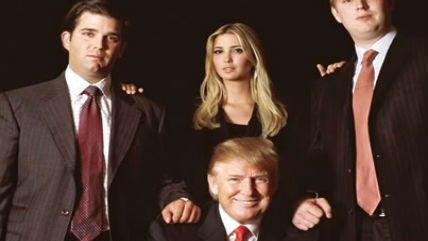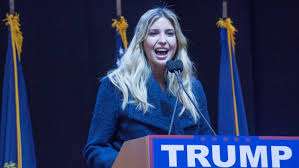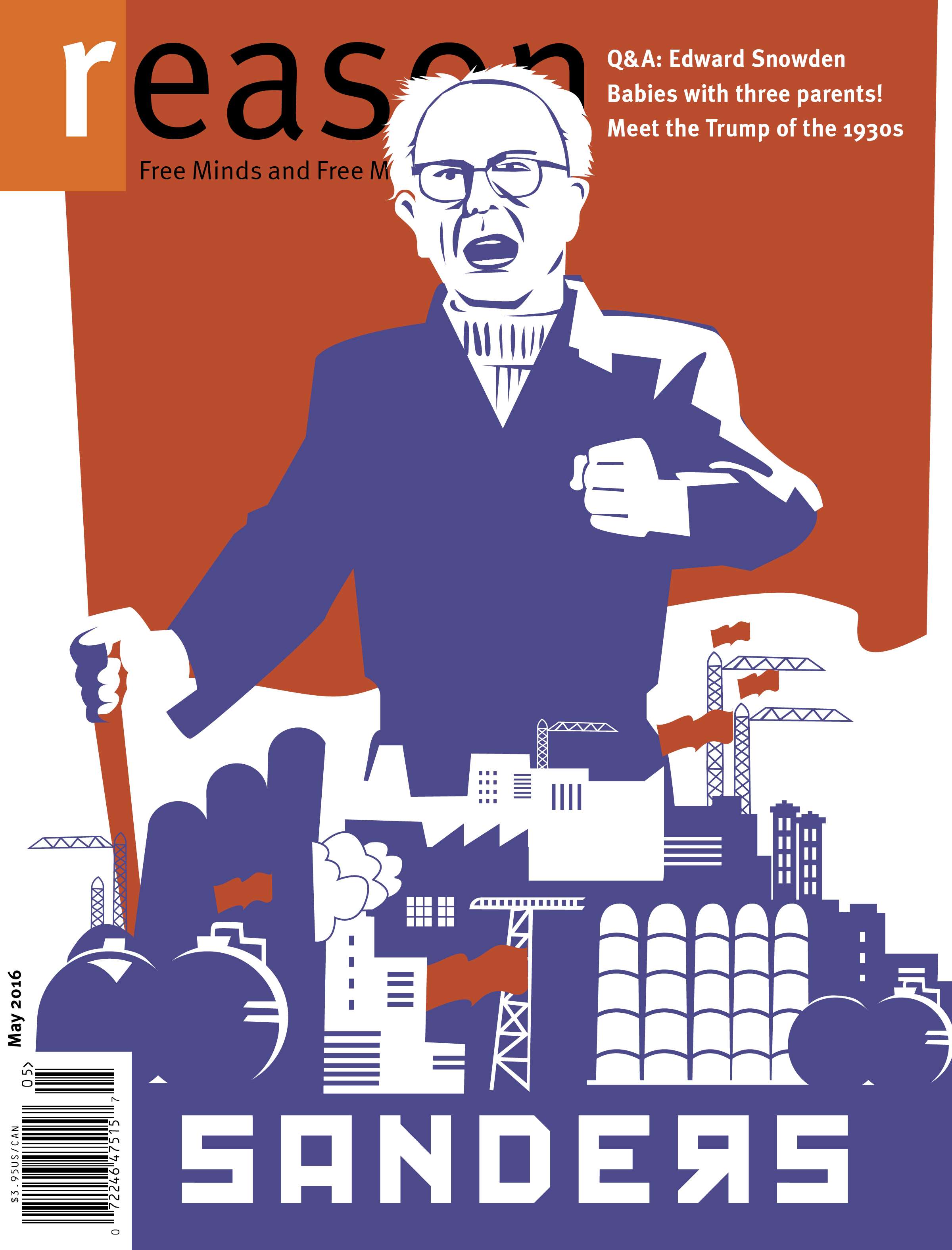New York's Stingy Voting Rules Will Hurt Independents, Bernie Sanders, and Probably Donald Trump
Major parties going to absurd length to beat back unaffiliated voters with a stick


For the first time in living memory, today's New York primary could prove pivotal for both major-party presidential races. For Brooklyn native Bernie Sanders, this could be his Waterloo: If he doesn't eke out a victory in the home of Occupy Wall Street and the insurgent Zephyr Teachout campaign, his chances of winning more non-superdelegates than Hillary Clinton before the Democratic National Convention dwindles to virtually nil.
And though Donald Trump will certainly notch a #YUGE victory in the popular statewide vote, today is actually a high-stakes nailbiter for the Manhattan real estate icon, because of the Empire State's Byzantine rules for delegate selection. Each of New York's 27 congressional districts—regardless of whether any actual Republicans live in them—will award three delegates; any candidate winning 50+ percent in that district sweeps all three, but 49.9 percent gets you just two. The same formula is applied to the statewide total, and divvied up between 14 delegates. In plainer English, if Trump wins 50.1 percent in all 27 districts, he gets all 95 of New York's delegates; if he wins 49.9 percent, he gets just 61. That 34-delegate swing alone is larger than the number Trump won with his runaway romp in the state of Tennessee.
How close is Donald's margin for error? Consider that in the last seven New York polls, his percentages have been 50-51-54-49-57-54-55. As New York Times number-cruncher Nate Cohn puts it, "A few votes here or there could make the difference between a solid or shaky road to the Republican nomination." FiveThirtyEight (whose guide to the New York primary is a must-read for those interested), currently has Trump's average projection for overall delegates at a close-but-no-cigar 1,172; its New York projection is for 71. ABC News political analyst Matt Dowd says, "If he picks up north of 75, he has a real path to 1,237." Conservative talker Hugh Hewitt tweets that "If he sweeps 95 delegates a big win. If he's under 80 a loss. In between, meh…contested convention."
So what obstacle could block a few Trump votes here and there? Well, the same one that prevented two of his own children from voting for him today: New York's ridiculously restrictive voting laws.

As The Nation's Ari Berman recently summarized, "The voter-registration deadline for the April 19 primary closed 25 days beforehand…and independent or unaffiliated voters had to change their party registrations by October 9, 193 days before April 19, to vote in the closed Democratic or Republican primaries. This will disenfranchise nearly 30 percent of New Yorkers."
I'm a lifelong independent, so have no expectation of being handed a gold-plated invitation to vote in a political party's primary (unless those primaries are being financed by even one penny of my taxes, in which case: open up, ya bastidges!). But when I toyed half-heartedly two weeks ago with entering the NY fray to vote against either Trump or Hillary Clinton, hearing back that I needed to have made that call six months ago was clarifying. At a time when major-party affiliation is in (IMO) irreversible decline, the two remaining clumps of bitter-clingers are grasping at any available stick to beat back potential swarms of enthusiastic (and often righteously hostile) outsiders.
Professional Democrats and Republicans have a reflexive and sneering distrust of motivated independents, up until the very moment they become one (welcome aboard, Jonah Goldberg!). Front-runner Hillary Clinton, who has consistently trailed Bernie Sanders among independents by a staggering 50 percentage points, sniffs: "He's a relatively new Democrat, and, in fact, I'm not even sure he is one. He's running as one. So I don't know quite how to characterize him." Then you probably would not know how to characterize millennials, Madame Secretary, which may help explain why they're just not that into you.
Donald Trump's success in attracting unaffiliated conservatives in open-primary states has left many Republicans calling for even more closed primaries. You can disdain Trump, and conclude that much of his process-complaints are just sour grapes, while still acknowledging that the system occasionally is deliberately anti-democratic, and not in a particularly clever way. A party that treats repeated insurgencies within its own base as a problem to be contained is a party that refuses to learn—and as a direct result, continues to wither.
There are legal cases against closed primaries; click here and here for more. Ultimately I'm more fascinated by the sight—and the opportunities that flow from it—of dwindling duopolists trying desperately to fire their potential best new customers. Unaffiliated voters make up a plurality in states like Connecticut; you think they're looking at the party shenanigans next door and second-guessing that decision?
Swarms of independent voters are the future of American politics. They will not always swarm in the direction you want, but they are upending the political status quo every two years, notching at least some libertarian victories, and proving instinctively allergic to top-down control. If they lose both major-party nominating fights this year, Lord only knows how that vast and unpredictable energy will be spent next.


Show Comments (31)